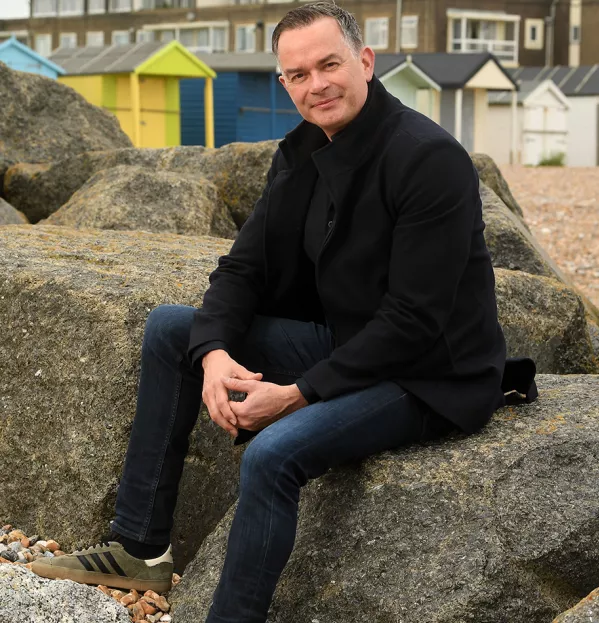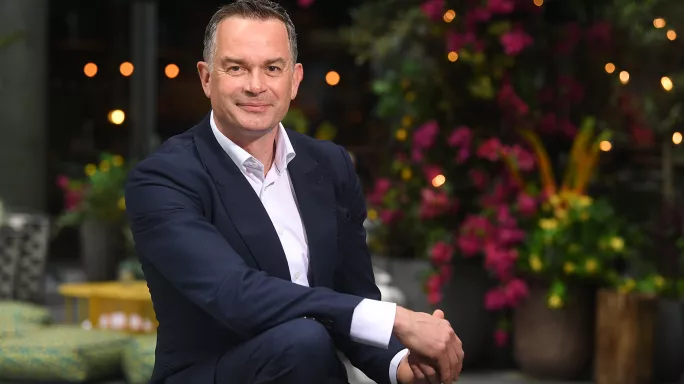- Home
- Leadership
- Strategy
- 10 questions with...Nick Brook
10 questions with...Nick Brook

Nick Brook is CEO of the social mobility charity Speakers for Schools, which provides access to work experience and careers talks for pupils at state schools.
He was also chair of the Department for Education’s strategic tutoring advisory group under the previous government.
Before that, Mr Brook was deputy general secretary at the NAHT school leaders’ union and had previously been a civil servant, leading thematic reviews and subject inspections at Ofsted, and also spent time at the Home Office and the constabulary inspectorate.
He started his career as a primary teacher, before becoming a local teacher recruitment manager.
1. Who was your most memorable teacher and why?
I have very happy memories of primary school. I particularly remember being in an experimental mixed-age year group that covered years 3 to 6 - not because it was a small school but because it was the 1970s and they were trying something different.
My teacher there was Mr Harris, who was incredibly artistic, and we did so many creative things during that year such as clay modelling. We’d build a kiln in the field so we could fire them ourselves. He just took everything that little bit further and gave the sense that he loved what he did and cared about his class.
2. What were the best and worst things about school?
The best thing undoubtedly about my time at secondary school was the friendships I made that I still have to this day.
I didn’t enjoy my time at secondary school. Looking back there was a lot of weak teaching and behaviour was poor. Nothing really seemed to matter and pessimism hung in the air.
When I got to university and started talking to other people about their school experiences I realised my experience was not particularly typical or fair, which led me to become quite resentful of the injustice that others had had a smoother path to university.
3. Why do you work in education?
Firstly, because I was always in and around school as my mum trained to be a teacher while I was young and worked in special schools, before moving to mainstream primaries.
My very happy memories of primary school and my teachers inspired me to want to become a teacher initially. But it was also the sense of injustice I felt after secondary school that drove me to stay on in education and fuelled my desire to work to reduce the unfairness in our system.
We say often that talent is spread evenly across the country, but opportunity isn’t, and I’ve been driven to do something about that throughout my career.
4. What are you proudest of in your career and what do you regret?
I set up the first local authority-based teacher training programme in Hastings in the 1990s, when they were struggling to hire teachers. I decided that we should be training people who lived in the local community to teach there.
It brought a lot of good people together and made a real difference to the community. Looking back, I can’t believe I even thought I could achieve that.
Right now, I’m really proud of how our team at Speakers for Schools is delivering our new ambition to get access to work experience for every young person in the country.
I’ve been very lucky in my career and don’t regret much. However, I would reflect on chairing the tutoring advisory group. I really wanted tutoring to succeed, and I passionately believe it was the right thing to make it accessible to those who need it most.

But the DfE implementation strategy was pretty appalling, and we actually needed to invest so much more time in winning the hearts and minds of political leaders to explain why they should have got behind it.
I assumed the political decision-makers would be behind it because it’s the right thing to do. I regret the fact the programme is coming to an end this year.
More Tes’ 10 questions:
- Lee Mason-Ellis, CEO of The Pioneer Academy
- Moira Marder, CEO of the Ted Wragg Trust
- Lee Wilson, CEO of Outwood Grange Academies Trust
5. Who would be your colleagues in your perfect school staffroom?
I’ve worked with a lot of incredible people in education, but perfect staff are defined by attitude, not individuals. So my perfect staffroom is probably not so different to many up and down the country, full of professionals passionate about what they do, doing the very best they can in the circumstances.
People who are consistently curious, hopeful, joyful, optimistic and deeply committed to young people, but who also know we won’t get it right all the time and that’s OK.
We have all these things in bucket loads in the profession, but they are also the things that can come under threat when we overload teachers with things that don’t make any meaningful difference to their ability to help young people.
6. What are the best aspects of our school system?
Schools are only as good as the people in them so, by definition, the best aspects are the people themselves.
For me, personally, it’s getting to work with young people - going into schools in my current role and as deputy general secretary at NAHT remind me when I do this job in the first place.
It’s a bit of a sidestep, but I think the best aspects of our school system are the young people within it.
7. What can we improve?
We’ve got to narrow the attainment and opportunity gap between young people from well-off, well-networked families and their less-advantaged peers.

The level of poverty we have in this country should be a source of national shame. We need to start addressing the root causes of underperformance in schools so young people can come into school ready to learn. And we have to stop blaming schools for failing to address all of those things.
8. Who in education has influenced you the most?
I always really admired Steve Mumby. His book Imperfect Leadership is a near-perfect leadership book, and the conversations I’ve had with him have been massively insightful and reassuring that the best leaders aren’t superhuman.
Christine Gilbert has also really influenced me. She’s one of the most incredible leaders and educators working today and has been enormously supportive and helpful to me through my career. When Christine walks in, people sit up and they try that little bit harder.
9. If you became education secretary tomorrow what would you do?
I would set a single eye-wateringly ambitious target for narrowing the attainment gap. It would be daunting in scale, but truly transformational.
Every action in the department would be relentlessly tested on how it was contributing to narrowing the gap.
And I would make sure every single person in the Cabinet was on the hook for delivery because the scale of the challenge facing education right now is too big for the DfE to solve alone.

We’re facing a massive crisis, and we need schools to be a priority for the Treasury, the cabinet office, the home office and every department, to address the issues beyond the school gate and also see how educational success will help achieve wider priorities.
10. What are the most important lessons you’ve learned in your role?
That our education system needs urgent reform. A third of young people leave school without good passes in English and maths every year. Ours is a system geared towards measuring what young people can’t do rather than showing what they can.
We need to focus on skills - not just academic achievement.
I’ve learned that the greatest failure in our system isn’t young people not achieving particular grades - it’s the erosion of hope and opportunity. So many young people leave school, not just without qualifications, but without hope.
I hope the work experience Speakers for Schools facilitates helps change that.
This interview was conducted prior to the July general election
For the latest school and trust leadership insights delivered directly to your inbox every month, sign up to the Tes Leaders’ Briefing newsletter
You need a Tes subscription to read this article
Subscribe now to read this article and get other subscriber-only content:
- Unlimited access to all Tes magazine content
- Exclusive subscriber-only stories
- Award-winning email newsletters
Already a subscriber? Log in
You need a subscription to read this article
Subscribe now to read this article and get other subscriber-only content, including:
- Unlimited access to all Tes magazine content
- Exclusive subscriber-only stories
- Award-winning email newsletters



